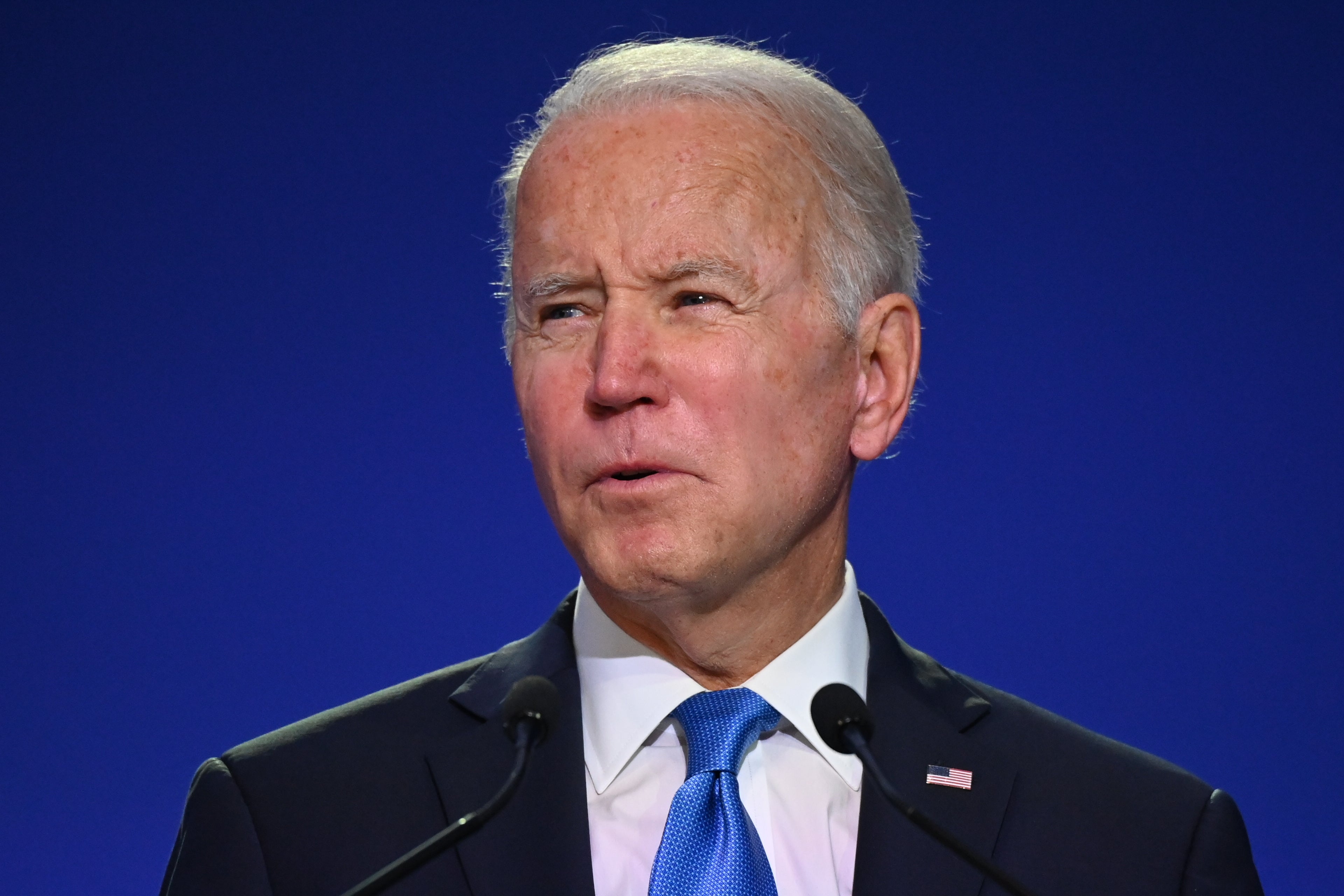Joe Biden calls for regime change in Moscow as he likens invasion to WW2 horrors
The US president issued a direct message to the Russian people during a major speech from Warsaw.

Joe Biden directly appealed to the Russian people with comparisons between the invasion of Ukraine and the horrors of the Second World War as he called for Vladimir Putin to go.
“For God’s sake this man cannot remain in power,” the US president said, apparently calling for regime change in Moscow at the end of a speech from Poland on Saturday.
He said “if you’re able to listen: you, the Russian people, are not our enemy” before evoking the Nazi’s siege of Leningrad and likening it to the atrocities in Ukraine.
“These are not the actions of a great nation,” Mr Biden said, in front of the Royal Castle, a landmark in Warsaw that was badly damaged during Adolf Hitler’s war.
“Of all people, you the Russian people, as well as all people across Europe still have the memory of being in a similar situation in the 30s and 40s, the situation of World War Two, still fresh in the mind of many grandparents in the region.”
“Whatever your generation experienced, whether it experienced the siege of Leningrad, or heard about it from your parents and grandparents, train stations overflowing with terrified families fleeing their homes, nights sheltering in basements and cellars, mornings sifting through the rubble in your home – these are not memories of the past – not any more, it’s exactly what the Russian army is doing in Ukraine right now.”
Multiple rockets struck the western Ukrainian city of Lviv near the Polish border during Mr Biden’s visit, which came as Russia faced the prospect of further setbacks in the war.
The US president said Moscow’s troops have “met their match with brave and stiff Ukrainian resistance” and have strengthened the resolve and unity of both the defending forces and the West.
“Russia wanted less of a Nato presence on his border but now he has a stronger presence, a larger presence,” he said.
Mr Biden said 200,000 Russians had left their country in a single month in a “remarkable brain drain” as Mr Putin, who he earlier called a “butcher”, had “strangled democracy”.
Addressing the thousand-strong audience that included refugees who have fled the war, he told Ukrainians “we stand with you – period” as he defended the nation’s president, Volodymyr Zelensky.
“Putin has the gall to say he’s denazifying Ukraine. It’s a lie, it’s just cynical – he knows that,” Mr Biden said.
“And it’s also obscene. President Zelensky was democratically elected, he’s Jewish, his father’s family was wiped out in the Nazi holocaust and Putin has the audacity – like all autocrats before him – to believe that might will make right.”
But as he made an impassioned defence of democracy, he reminded European nations they must “end its dependence on Russian fossil fuels”.
Sanctions, he said, have been sapping Russia’s strength and have reduced the rouble “to rubble”.
But Mr Biden warned: “This battle will not be won in days, or months either. We need to steel ourselves for the long fight ahead.”
Despite clearly calling for Mr Putin to go at the end of his speech, a White House official tried to argue that the US President’s point was that the Russian leader “cannot be allowed to exercise power over his neighbours or the region”.
“He was not discussing Putin’s power in Russia, or regime change,” the official added, before reports in the US suggested the remarks in question had not been scripted.
Tobias Ellwood, the Conservative MP who chairs the Commons Defence Committee, said Mr Biden’s comment was “unwise”.
He warned the Russian president will now see regime change as Mr Biden’s wider objective, adding: “Putin will spin this, dig in and fight harder.”
Mr Biden stopped at RAF Mildenhall, a base in Suffolk that supports US military operations, on his way back to Washington so that his Air Force One jet could refuel.
Moscow has gave an indication it could scale back its offensive to focus on what it claimed was the “main goal, liberation of Donbas”, the region bordering Russia in the east of Ukraine.
Mr Zelensky’s forces were regaining ground around the capital of Kyiv and the UK Ministry of Defence (MoD) said Russians are “proving reluctant to engage in large scale urban infantry operations”.
Instead, the MoD said, they were preferring the “indiscriminate use of air and artillery bombardments in an attempt to demoralise defending forces”.
However, there were fresh signs it was Mr Putin’s troops who were struggling with morale, as Western intelligence suggested a Russian brigade commander, Colonel Medvechek, was deliberately run down and possibly killed by his own troops.
An adviser to the Ukrainian ministry of defence, Markian Lubkivskyi, predicted troops could on Saturday take back Kherson, the first major city that the Kremlin’s forces seized.
He was sceptical that the Russian President’s aims had truly changed away from trying to take the whole nation, but said it does appear “the enemy is focused on the eastern part of Ukraine”.
The port city Kherson, in the south east, fell to the Russians early this month in their first major gain.
But Mr Lubkivskyi told BBC Radio 4’s Today programme: “I believe that today the city will be fully under the control of Ukrainian armed forces.
“We have finished in the last two days the operation in the Kyiv region so other armed forces are now focused on the southern part trying to get free Kherson and some other Ukrainian cities.”
Bookmark popover
Removed from bookmarks